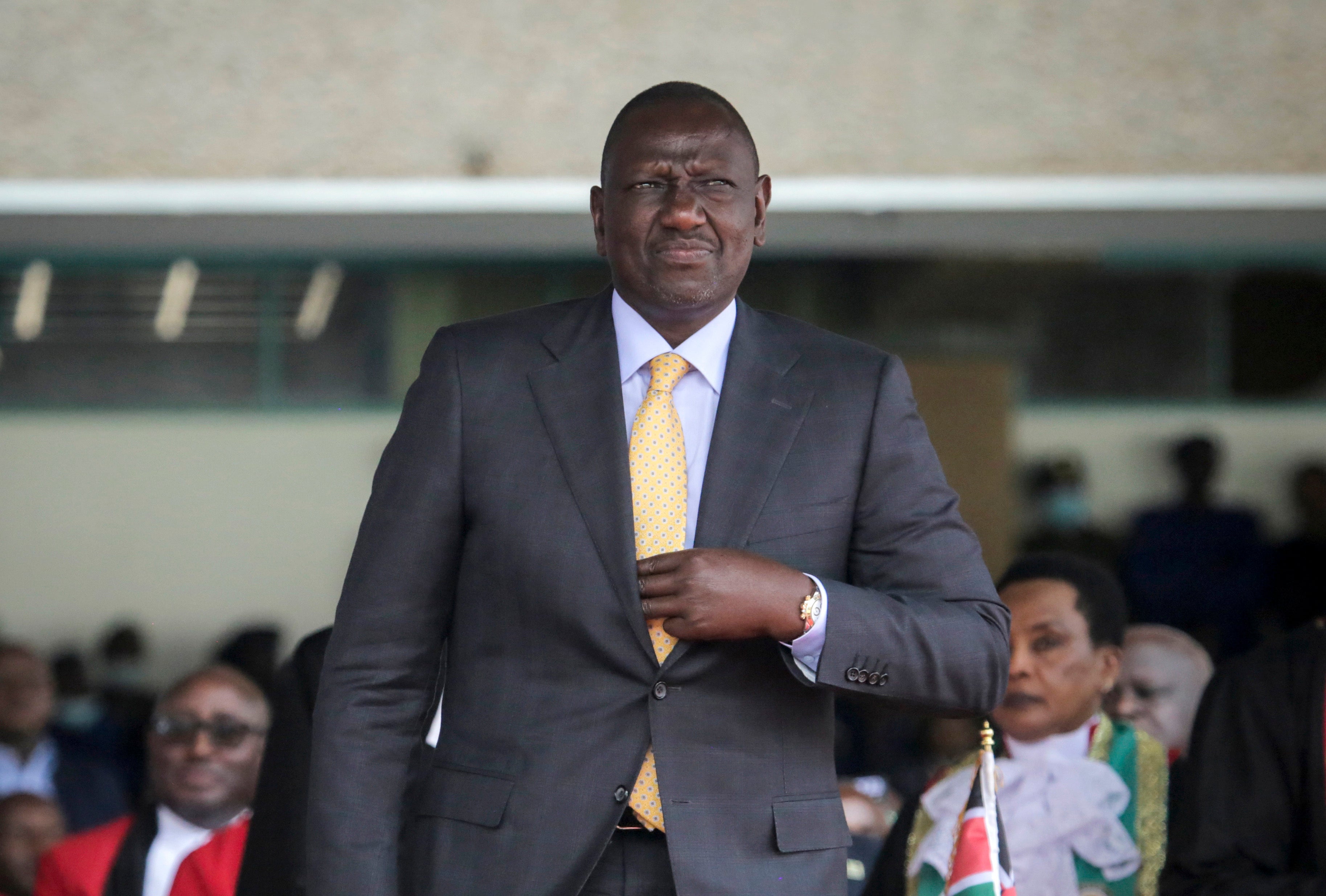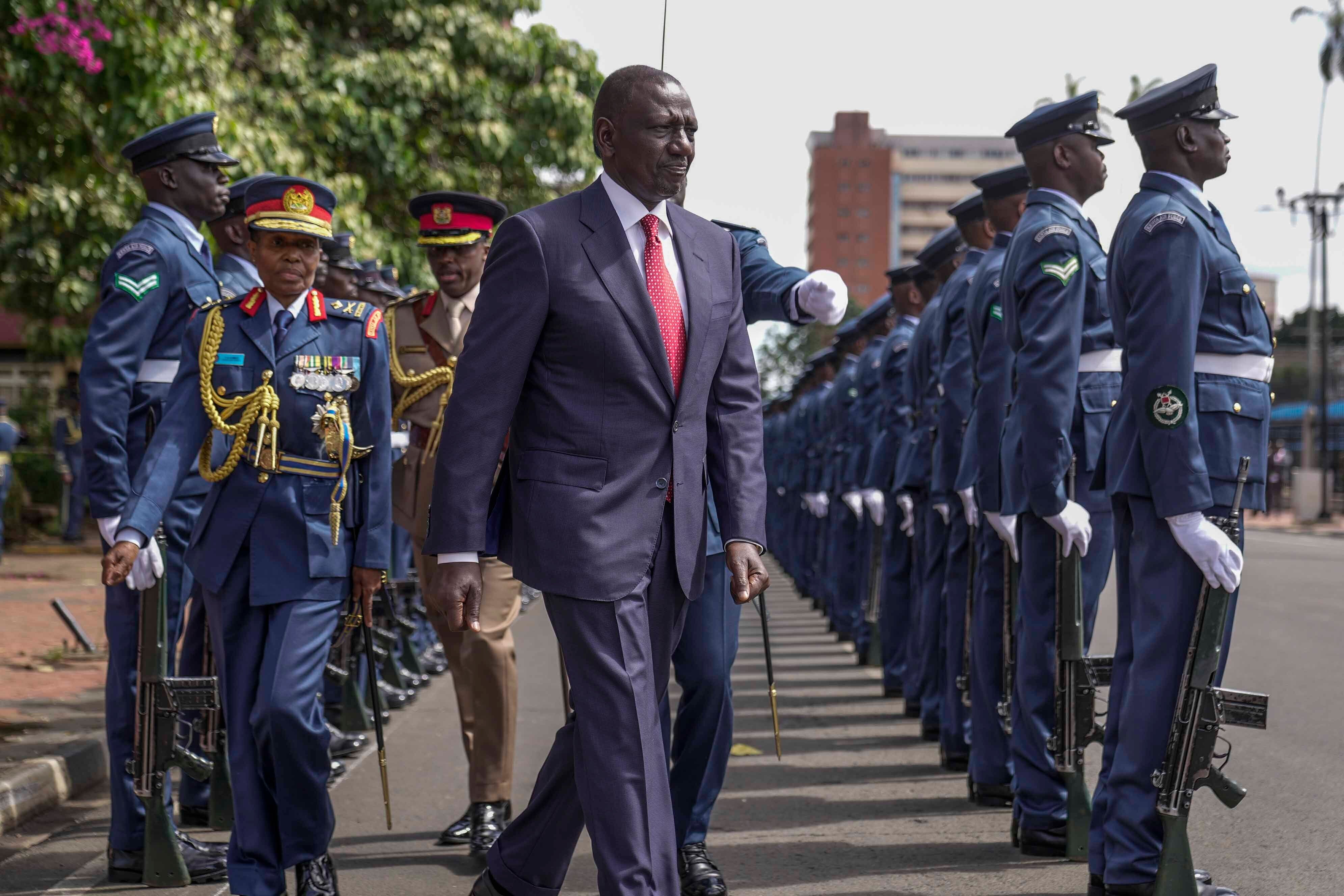Some Africans have seen a big belly as a sign of wealth. It’s killing them
The contrast highlights Kenya’s growing inequality and the popularity of fast and processed foods

In many African cultures, a large belly has traditionally signified wealth and prosperity. However, this long-held perception is now proving deadly as obesity-related illnesses become a leading cause of death.
In Kenya, the association between weight and status is particularly evident. Overweight politicians often earn the moniker "Boss" or "Mkubwa" – Swahili for "big man" – a term reflecting the cultural view of girth as a symbol of success. This perception, however, masks a growing health crisis. Obesity contributes significantly to non-communicable diseases like diabetes, now the leading cause of death in Kenya. According to the Kenyan health ministry, these diseases account for 39% of fatalities annually.
This alarming trend has prompted a shift in attitudes, particularly among younger politicians. Leaders such as the governors of Nairobi and Mombasa have begun publicly discussing their weight loss journeys, challenging traditional views and highlighting the importance of a healthy lifestyle. This marks a potential turning point in a culture where weight has long been equated with wealth, suggesting a growing awareness of the serious health risks associated with obesity.
In a country where the government has said almost a third of the population is still unable to fulfill food needs, 13% adults are obese, according to the 2025 World Obesity Atlas. The contrast highlights the country's growing inequality and the popularity of fast and processed foods by those with rising incomes.
Perceptions about obesity can affect financial and other decisions. In neighboring Uganda, microfinance institutions vetted loan applicants based on their weight, and those overweight were considered more able to repay loans, according to a study published by the American Economic Review in 2023.
“Most people feel like when I start making money, I have to look like the money itself by being fat or obese,” said Kenyan nutritionist Felix Okoth. “They however don’t realize that they are predisposing themselves to these lifestyle conditions such as diabetes and hypertension.”
The World Health Organization's Africa director has called the rising trend a “ticking time bomb" for the continent with the world's youngest and fastest growing population.
Some are trying to change the conversation around weight. A former senator in Kenya, Cleophas Malala, has described how a 15-hour flight to the U.S. left him in pain and how doctors advised him to reduce.
From a starting weight of 138 kilograms (304 pounds), he embarked on a non-solid diet for 90 days. Though he didn’t disclose his current weight, before-and-after photos show him noticeably slimmer.
“My colleagues in parliament were mad that I left the ‘club’ after I lost weight,” the 39-year-old has said.
Stephen Ogweno, who had childhood obesity and later became a public health advocate, said most Kenyan legislators don’t see the issue as a problem.
“These discussions are held in parliament where most MPs have big bellies, and so admitting that it concerns them, too, would be a good place to start,” he said.

Kenyan President William Ruto has spoken publicly about the need to be fit for work. He had to reassure Kenyans in 2023 that he was okay after online speculation about his health following weight loss.
“I decided to cut it down because the task ahead was not easy,” he told journalists.
Increasing incomes, proliferation of fast-food outlets in urban areas, sedentary lifestyles and lack of infrastructure that promotes physical activity have been named as probable causes of rising obesity in developing countries.
“We need to make sure that when we move away from lack of food, we are not going to the wrong food groups,” said a Kampala-based doctor, Miriam Laker Oketta.
Public health campaigns will help demystify the perception that weight is an indication of wealth, said Caroline Kirui, the Africa director for Project ECHO, an information-sharing platform for healthcare workers.
Gyms, weight loss drugs and surgeries are being increasingly advertised in Kenya.
But approaches such as the Ozempic weight-loss drug have left some users like Caroline Havi dissatisfied. She said she turned to a one-meal-a-day diet instead and hopes to eventually reduce her weight from 105 kilograms to 70 “without spending so much."
In South Africa, obesity-related deaths due to non-communicable diseases have surpassed HIV-related deaths, according to the WHO. The 2025 World Obesity Atlas said 32% of South Africa's adults are obese.
The perception that weight is a symbol of wealth is slowly changing, said Rebone Ntsie, nutrition director at the National Department of Health.
“There are those who still see it like that, but people are also seeing the dangers and its no longer celebrated as a sign of dignity, beauty, respect, social status," she said.